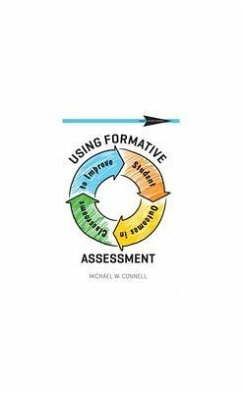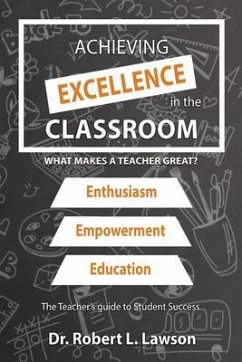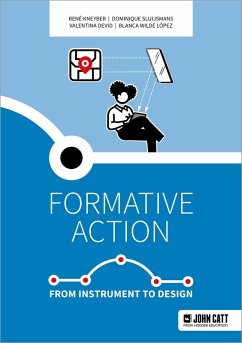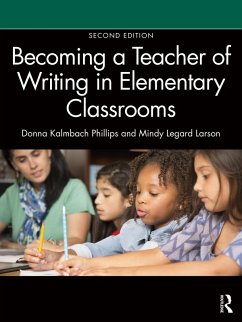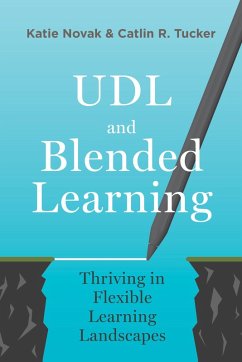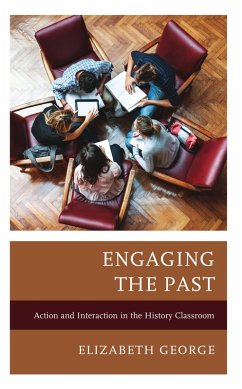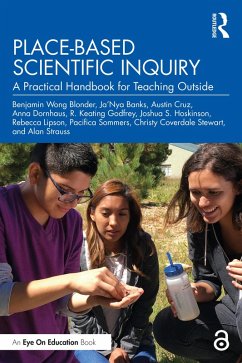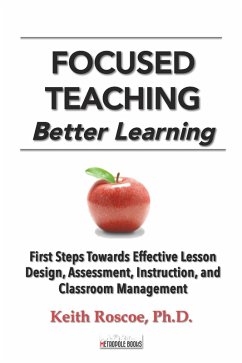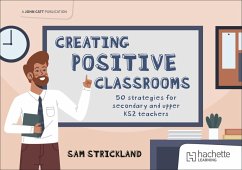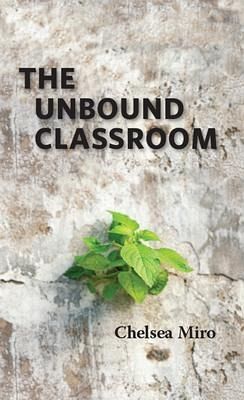
The Unbound Classroom (eBook, ePUB)
Versandkostenfrei!
Sofort per Download lieferbar
15,95 €
inkl. MwSt.
Weitere Ausgaben:

PAYBACK Punkte
8 °P sammeln!
In The Unbound Classoom, educator Chelsea Miro invites readers to "imagine a classroom that empowers every student to pursue their interests, to travel the paths of their curiosity, to allow learning to be a natural process." But what does this look like, sound like, and feel like? How can teachers design their classrooms and lessons to bring this vision to reality?Drawing on the inclusive principles of Universal Design for Learning (UDL), The Unbound Classroom strives to create a real-world experience for students by removing disciplinary boundaries and allowing for thematic learning to take ...
In The Unbound Classoom, educator Chelsea Miro invites readers to "imagine a classroom that empowers every student to pursue their interests, to travel the paths of their curiosity, to allow learning to be a natural process." But what does this look like, sound like, and feel like? How can teachers design their classrooms and lessons to bring this vision to reality?
Drawing on the inclusive principles of Universal Design for Learning (UDL), The Unbound Classroom strives to create a real-world experience for students by removing disciplinary boundaries and allowing for thematic learning to take the lead. Rather than focus on a singular driving question, units cover a wide variety of relevant questions and ideas centered on the real-world study of a theme. With this strategy, students find the mode that is most engaging for them, and then allow their curiosity to guide their focus.
Miro explains that this is why UDL is so important to the Unbound Classroom. UDL helps teachers think about the varying ways students learn and address that variability before each and every lesson. Integrating the UDL guidelines with cross-disciplinary, thematic units, results in a classroom that is ready to support the growth, curiosity, and insight of every student.
By focusing on a central theme rather than a singular driving question, the Unbound Classroom also becomes highly flexible. Teachers can use the Unbound Classroom to develop a few lessons that integrate the disciplines and use the foundational approach or they can commit to an all-encompassing unit. The focus is on thinking outside the structures of the disciplines - math, science, English, history - and instead thinking about how to best learn all the facets of a particular topic, how to create rich, deep learning opportunities.
In this book, Miro walks through each step of creating a robust thematic unit but also includes shorter lessons, activities and strategies that teachers can utilize immediately.
Drawing on the inclusive principles of Universal Design for Learning (UDL), The Unbound Classroom strives to create a real-world experience for students by removing disciplinary boundaries and allowing for thematic learning to take the lead. Rather than focus on a singular driving question, units cover a wide variety of relevant questions and ideas centered on the real-world study of a theme. With this strategy, students find the mode that is most engaging for them, and then allow their curiosity to guide their focus.
Miro explains that this is why UDL is so important to the Unbound Classroom. UDL helps teachers think about the varying ways students learn and address that variability before each and every lesson. Integrating the UDL guidelines with cross-disciplinary, thematic units, results in a classroom that is ready to support the growth, curiosity, and insight of every student.
By focusing on a central theme rather than a singular driving question, the Unbound Classroom also becomes highly flexible. Teachers can use the Unbound Classroom to develop a few lessons that integrate the disciplines and use the foundational approach or they can commit to an all-encompassing unit. The focus is on thinking outside the structures of the disciplines - math, science, English, history - and instead thinking about how to best learn all the facets of a particular topic, how to create rich, deep learning opportunities.
In this book, Miro walks through each step of creating a robust thematic unit but also includes shorter lessons, activities and strategies that teachers can utilize immediately.
Dieser Download kann aus rechtlichen Gründen nur mit Rechnungsadresse in A, D ausgeliefert werden.




